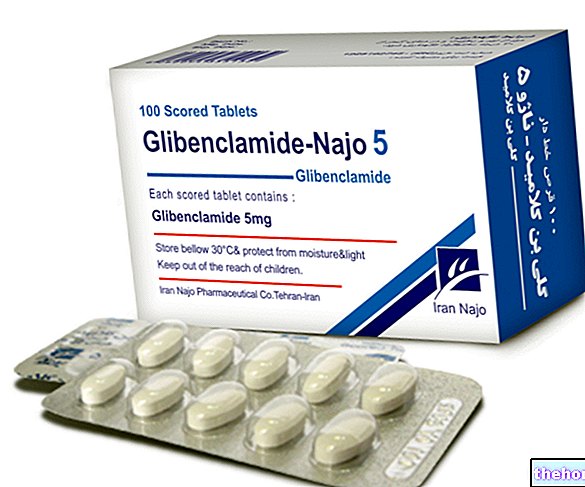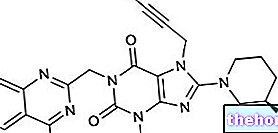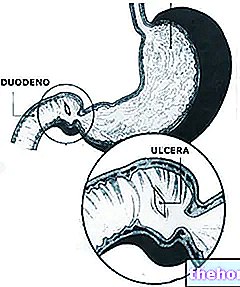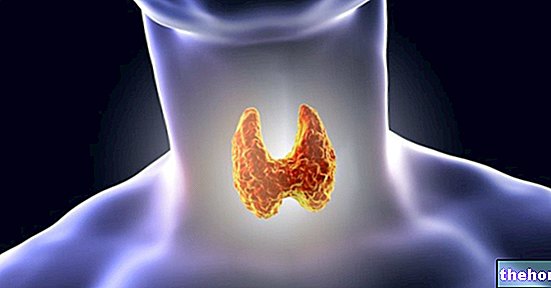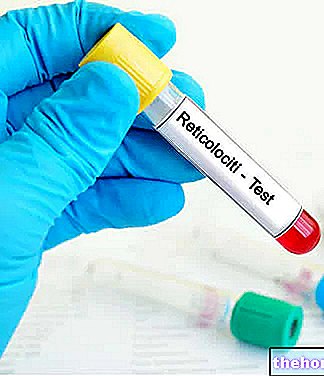BYETTA ® an exenatide-based drug
THERAPEUTIC GROUP: Other hypoglycemic agents excluding the various forms of insulin
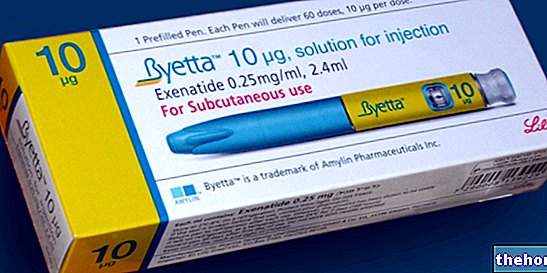
Indications BYETTA ® Exenatide
BYETTA ® useful in the treatment of hyperglycemia of the second type diabetic patient not adequately controlled by the intake of oral hypoglycemic agents.
For this reason BYETTA ® is usually taken concomitantly with sulfonylureas or metformin.
Mechanism of action BYETTA ® Exenatide
BYETTA ® is a drug based on exenatide, a peptide of 39 amino acids isolated for the first time from the saliva of a reptile in 1992 and returned to clinical practice in 2005.
This peptide in fact has a structure similar to some domains of the hormone GLP-1 (glucagon like peptide 1), produced in vivo by the intestinal cells of the ileum, but characterized by a decidedly longer half-life and a greater hypoglycemic efficacy.
Taken by subcutaneous administration, it reaches its maximum peak within 2 hours of intake, and is distributed to the various tissues by means of the circulatory stream.
The glucose-dependent hypoglycemic effect is due to the ability to act on pancreatic beta cells, increasing the secretion of insulin at meals, and gradually reducing it with the lowering of blood sugar, thus reproducing the physiological insulin response and thus avoiding the condition of hypoglycemia.
But exenatide has a complex biological-metabolic role by also inhibiting the production of glucagon, slowing gastric emptying, thus modulating the post-prandial glycemic increase as well as reducing the sensation of appetite and improving the lipid profile.
Once its action is over, this molecule is eliminated mainly by the kidney.
Studies carried out and clinical efficacy
1. EXENATIDE, BODY WEIGHT AND TYPE II DIABETES
BMC Endocr Disord. 2011 Apr 29; 11: 9.
Exenatide Once Weekly Treatment Maintained Improvements in Glycemic Control and Weight Loss Over 2 Years.
Taylor K, Gurney K, Han J, Pencek R, Walsh B, Trautmann M.
One of the main factors associated with type 2 diabetic disease is being overweight, which often worsens the course of the disease. Unfortunately, most hypoglycemic therapies, including insulin-based therapies, seem to negatively affect weight, causing it to increase. Unlike common therapies, that with exenatide, which continued for a period of 2 years, has also proved useful in reducing abdominal adipose tissue and improve insulin sensitivity.
2. EXENATIDE AND CARDIOVASCULAR PATHOLOGIES
Cardiovasc Diabetol. 2011 Mar 16; 10: 22.
Cardiovascular safety of exenatide BID: an integrated analysis from controlled clinical trials in participants with type 2 diabetes.
Ratner R, Han J, Nicewarner D, Yushmanova I, Hoogwerf BJ, Shen L.
Therapy with exenatide is gradually becoming increasingly important in the treatment of type 2 diabetic patients, as it has proved capable not only of improving altered metabolic parameters, but also of determining a consistent weight reduction, accompanied by a significant decrease. cardiovascular events (first cause of death of the second type diabetic patient).
3. EXENATIDE AND METABOLIC PARAMETERS
Endocr Pract. 2011 Mar-Apr; 17: 192-200.
Durability of effects of exenatide treatment on glycemic control, body weight, systolic blood pressure, C-reactive protein, and triglyceride concentrations.
Varanasi A, Chaudhuri A, Dhindsa S, Arora A, Lohano T, Vora MR, Dandona P.
The treatment of the second type diabetic patient with exenatide has proved useful in reducing the levels of glycated hemoglobin to below 7%, in reducing body weight by an average of 5 kg, in reducing blood concentrations of triglycerides, in reducing blood pressure and in reducing the concentrations of inflammatory markers such as C-reactive protein. This study demonstrates the complex metabolic role of this peptide.
Method of use and dosage
BYETTA 0.25 of synthetic exenatide per ml of solution, doses of 5 mcg in pre-filled pens:
BYETTA ® drug therapy should be started with the minimum dose of 5 micrograms twice daily for at least two weeks, and possibly increased to 10 micrograms twice daily.
The correct dosage in any case should be established by the doctor after a careful evaluation of the patient's physiopathological status, the severity of his pathology and the possible concomitant intake of other hypoglycemic drugs.
BYETTA ® Exenatide Warnings
The therapeutic action of exenatide is carried out exclusively on still active pancreatic beta cells, for this reason BYETTA ® is indicated in the treatment of type 2 diabetes mellitus in which the administration of insulin is not yet required.
A variation of the common dosages may be necessary in patients with reduced renal function, in whom the elimination kinetics are delayed, therefore the active ingredient persists in the circulation for prolonged periods of time.
Treatment with exenatide, when combined with the administration of sulfonylurea and metformin, may induce hypoglycaemia; therefore it would be advisable for the patient to be instructed on the risks and symptoms of this condition, in order to implement rapid therapeutic strategies useful for avoiding an aggravation of health conditions.
Hypoglycaemia itself could make the use of machinery and driving vehicles dangerous.
PREGNANCY AND BREASTFEEDING
The absence of studies concerning the safety of the fetus and the efficacy of exenatide in the control of gestational diabetes does not in any way allow the use of BYETTA ® in the treatment of gestational diabetes.
Interactions
Several studies have evaluated the impact of exenatide on the pharmacokinetics of various active substances.
In a very general way it is important to consider that the slowed gastric emptying induced by this peptide could delay the absorption of numerous active principles, lengthening the action times and the appearance of therapeutic effects.
Numerous studies are currently underway to further characterize these properties and predict their pharmacokinetic variations.
Contraindications BYETTA ® Exenatide
BYETTA ® contraindicated in case of hypersensitivity to the active substance or to one of its excipients.
Undesirable Effects - Side Effects
Clinical studies in the literature and data from post-marketing monitoring show some side effects associated with therapy with exenatide, detectable with different frequency in patients treated with BYETTA ®
Among the most common headache, dizziness, inappetence, abdominal pain, nausea, vomiting, nervousness and asthenia were the most documented, while episodes of hypoglycaemia were observed exclusively in conjunction with the administration of metformin and sulphonylurea.
With a rather rare frequency, hypersensitivity reactions to the drug accompanied by various symptoms such as bronchospasms, edema, vasodilation and dermatological reactions and acute pancreatitis have been observed.
Note
BYETTA ® sold only under medical prescription.
BYETTA ® falls within the doping class: Hormones and related substances (prohibited in and out of competition).
The information on BYETTA ® Exenatide published on this page may be out of date or incomplete. For a correct use of this information, see the Disclaimer and useful information page.


